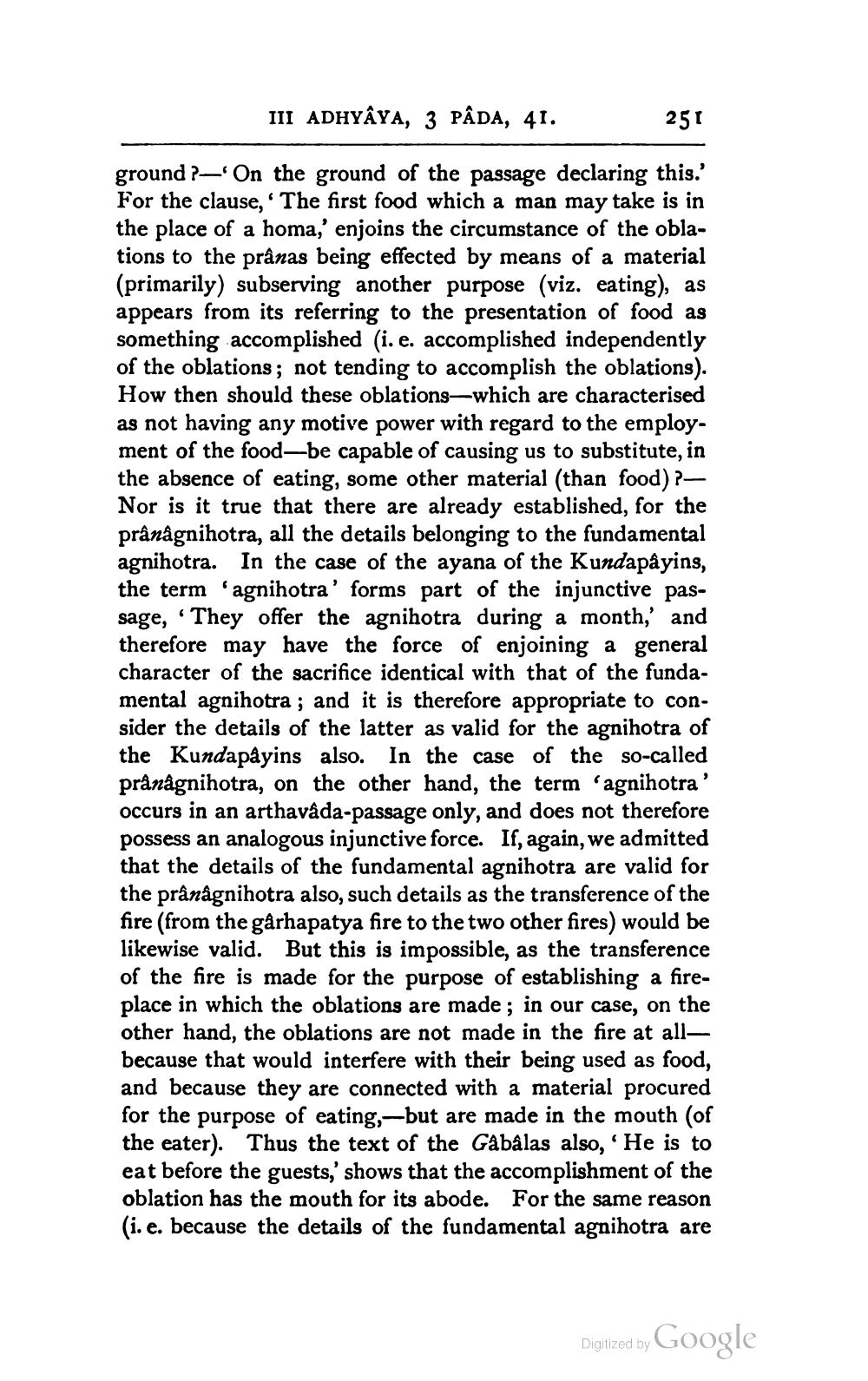________________
III ADHYAYA, 3 PÂDA, 41.
251
ground - On the ground of the passage declaring this.' For the clause, 'The first food which a man may take is in the place of a homa,' enjoins the circumstance of the oblations to the prânas being effected by means of a material (primarily) subserving another purpose (viz. eating), as appears from its referring to the presentation of food as something accomplished (i.e. accomplished independently of the oblations: not tending to accomplish the oblations). How then should these oblations—which are characterised as not having any motive power with regard to the employment of the food-be capable of causing us to substitute, in the absence of eating, some other material (than food) ?Nor is it true that there are already established, for the prânågnihotra, all the details belonging to the fundamental agnihotra. In the case of the ayana of the Kundapâyins, the term 'agnihotra' forms part of the injunctive passage, .They offer the agnihotra during a month,' and therefore may have the force of enjoining a general character of the sacrifice identical with that of the fundamental agnihotra ; and it is therefore appropriate to consider the details of the latter as valid for the agnihotra of the Kunda payins also. In the case of the so-called prånågnihotra, on the other hand, the term 'agnihotra' occurs in an arthavada-passage only, and does not therefore possess an analogous injunctive force. If, again, we admitted that the details of the fundamental agnihotra are valid for the prânâgnihotra also, such details as the transference of the fire (from the gårhapatya fire to the two other fires) would be likewise valid. But this is impossible, as the transference of the fire is made for the purpose of establishing a fireplace in which the oblations are made; in our case, on the other hand, the oblations are not made in the fire at allbecause that would interfere with their being used as food, and because they are connected with a material procured for the purpose of eating, but are made in the mouth (of the eater). Thus the text of the Gåbålas also, 'He is to eat before the guests,' shows that the accomplishment of the oblation has the mouth for its abode. For the same reason (i.e. because the details of the fundamental agnihotra are
Digitized by
Digilzed by Google




